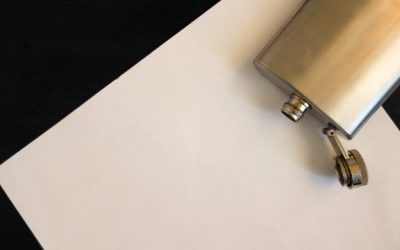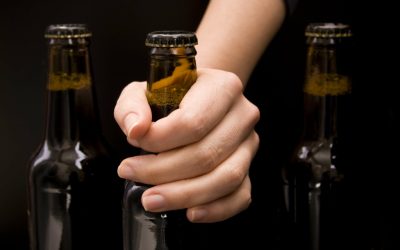Alcohol and Anxiety: Panic Attacks After Drinking
If you reach for alcohol in an effort to avoid experiencing a panic attack or feelings of anxiety, you can quickly become trapped in a debilitating cycle that becomes very difficult to break. Alcohol use can cause new onset anxiety and worsen pre-existing anxiety symptoms. Many individuals will use alcohol as an unhealthy coping tool to reduce symptoms of anxiety. Some research suggests that your body’s natural fight-or-flight response to danger is involved in panic attacks. For example, if a grizzly bear came after https://www.shamardanov.ru/500-velichajshih-albomov-vseh-vremyon-po-versii-zhurnala-rolling-stone.html you, your body would react instinctively.
Use medication under doctor’s supervision
- Panic attacks have many variations, but symptoms usually peak within minutes.
- A 2018 narrative review suggests that 21.9% to 24.1% of people with an anxiety disorder or mood disorder use alcohol or drugs to relieve their symptoms.
When people use alcohol to relieve symptoms of a mental health condition, it can quickly become http://gamelegend.ru/soundtrack/554-saundtreki-k-igre-max-payne-3-2012-mp3.html a “crutch.” The onset of symptoms related to social anxiety disorder and agoraphobia can be a trigger for some people to develop unhealthy relationships with alcohol. Getting proper rest can ease panic-inducing symptoms and prevent a panic attack.
Impact on the central nervous system
- Alcohol is a sedative and a depressant that affects the central nervous system.
- Other supplements, such as magnesium, omega-3 fatty acids, and L-theanine, are also explored for their potential calming effects.
- Cynthia has over 15 years of experience in the mental health profession.
- Yes, alcohol and cannabis (weed) causes panic disorder because these substances trigger panic attacks and contribute to the development of anxiety disorders.
- Alcohol can cause a panic attack while we’re drunk or after we drink, and it can increase our risk for a panic attack to recur.
- Let’s see how alcohol fuels the fire that can lead to alcohol dependence and poor mental health.
One of the worst things about panic attacks is the intense fear that you’ll have another one. You may fear having panic attacks so much that you avoid certain situations where they may occur. Although panic attacks themselves aren’t life-threatening, they can be frightening and significantly affect your quality of life.

Behavioral Signs of Alcohol-Related Anxiety
These issues can create more anxiety as you cope with their symptoms. When we drink, we might feel calm, happy, and carefree, but shortly afterward, the pendulum swings the other way. Let’s understand how alcohol can cause panic attacks and how we can prevent them from happening. Developing coping strategies and seeking support are essential steps in managing anxiety during this transition.
Talk Therapy
It’s not necessarily the type of alcohol you drink that can affect your levels of anxiety, but rather anxiety is related to the amount and frequency of alcohol use. Documentation from psychiatrists, including a diagnosis of how the disorder affects functioning, is required to support claims for disability benefits. Individuals also need to demonstrate that they have sought treatment and that their symptoms persist despite these efforts. Legal considerations vary by jurisdiction, so individuals should consult with an attorney or a disability advocate to understand their rights and the specific criteria applicable to their situation. You can find support for panic disorder through support groups, online communities, professional services, and several resources available. Yes, panic disorder can be effectively treated and managed, but whether it can be completely cured varies by individual.
What Causes Alcohol Withdrawal Symptoms?

These conditions often involve intense feelings of fear, worry, and physical symptoms that can be overwhelming for those affected. This is a common myth that contributes to misunderstanding and stigma surrounding anxiety disorders. Yes, alcohol and cannabis (weed) causes panic disorder because these substances trigger panic attacks and contribute to the development of anxiety disorders. Yes, PTSD, bipolar disorder, and depression can lead to panic disorder. Individuals with PTSD experience panic attacks triggered by traumatic memories, as heightened anxiety and hypervigilance, increase sensitivity to panic-inducing sensations.
- Panic attacks are sudden episodes of intense fear that trigger severe physical reactions.
- These physical sensations closely resemble panic attack symptoms, potentially setting off an anxiety spiral.
- Individuals with PTSD experience panic attacks triggered by traumatic memories, as heightened anxiety and hypervigilance, increase sensitivity to panic-inducing sensations.
- Your partner, parents, children, friends, employer, coworkers, doctor, or therapist might confront you about your drinking habits or your behavior when you drink.
Anxiety can become a health problem if it affects your ability to live your life as fully as you want to. The information in this article is for informational and educational purposes only and should never be substituted for medical advice, diagnoses, or treatment. If you or someone you know may be in danger, call https://www.languages-study.com/english-a2.html 911 or the National Suicide and Crisis Lifeline at 988 right away. Connecting with friends, family, or support groups provides emotional stability during recovery.

Risk Factors for Anxiety
Symptoms of alcohol withdrawal can include restlessness, irritability, and anxiety — all of which are just the body trying to adjust to no longer having alcohol’s sedative effect in its system. Hangxiety — a play on the words hangover and anxiety — is a crucial concept to understand if you feel alcohol is affecting your mental health. Hangxiety is the stress or anxiety you start feeling after you consume alcohol. For most people, the feeling comes on as the effects of intoxication begin to subside.